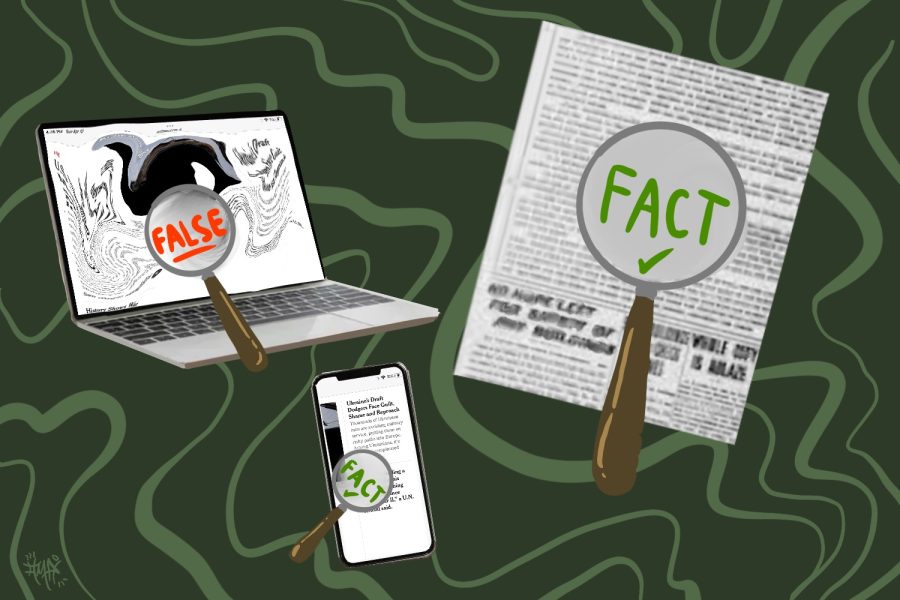Fact-check news on social media before sharing
April 14, 2022
When I opened Instagram two months ago and learned about the war breaking out in Ukraine, my first instinct was to send the Instagram post I saw to everyone.
It took me a minute, but I slowed down, checked the source, read the article and decided it was okay to send.
In times of uncertainty, everyone looks for information. The reach of social media and online content spreads false information easily.
Forty-eight percent of Americans often or sometimes get their news from social media, according to a Sept. 20 study from Pew Research Center.
I am among those Americans who get news from social media, and I try my best to remember that just because something is on my feed it is not necessarily accurate.
It’s difficult to pause in high-intensity moments, when new information appears every time you refresh your feed, but this abundance of misinformation is exactly why fact-checking is important in times of crisis.
I used to send people news stories from Twitter or Instagram without even reading the article to determine the headline’s accuracy.
My first thought was to send, rather than to think.
In my first year of college, I took a CDAE 195, Activist Journalism. I learned how easily and quickly misinformation can spread under the right conditions.
I then realized that my habit most likely contributed to this misinformation. By sharing first and fact-chcecking second, I was perpetuating the spread of fake news.
While social media news improves accessibility and speed of sharing information, it also creates a culture that strives for likes, and thrives on moments of chaos when content is not questioned.
One study found that false information is 70% more likely to be retweeted on Twitter, reaching the first 1,500 viewers six times faster than true information, according to a March 9, 2018 study from Science.
While the instinct to share information with friends can be immediate, taking a few minutes to check a source helps combat the spread of misinformation.
Fact-checking can be intimidating, but it’s as simple as seeing if multiple reliable sources have covered the same story.
Individuals should do their part to reduce misinformation by fact-checking before sharing, to help ensure the efficient and reliable spread of information, especially in times of crisis.
When a headline inevitably pops on one’s newsfeed, set aside a few minutes to see if it is true.
